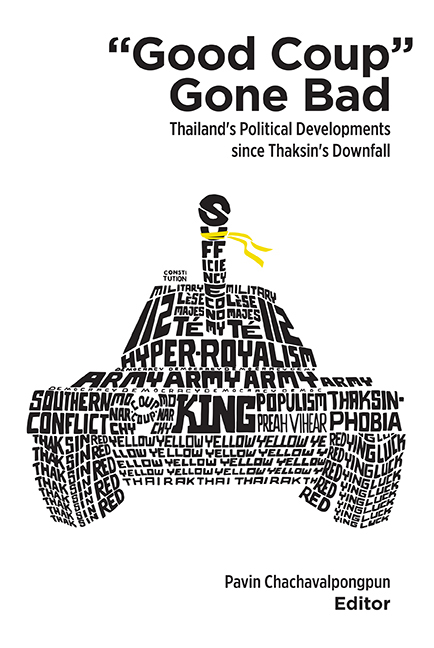Book contents
- Frontmatter
- Contents
- List of Tables and Figures
- Foreword
- Contributors
- Abbreviations
- Section I The 2006 Military Coup: Impact on the Thai Political Landscape
- Section II Defending the Old Political Consensus: The Military and the Monarchy
- Section III New Political Discourses and the Emergence of Yellows and Reds
- 6 “Vote No!”: The PAD's Decline from Powerful Movement to Political Sect?
- 7 The Red Shirts: From Anti-Coup Protesters to Social Mass Movement
- 8 Is Peasant Politics in Thailand Civil?
- Section IV Crises of Legitimacy
- Index
- Plate Section
8 - Is Peasant Politics in Thailand Civil?
from Section III - New Political Discourses and the Emergence of Yellows and Reds
Published online by Cambridge University Press: 21 October 2015
- Frontmatter
- Contents
- List of Tables and Figures
- Foreword
- Contributors
- Abbreviations
- Section I The 2006 Military Coup: Impact on the Thai Political Landscape
- Section II Defending the Old Political Consensus: The Military and the Monarchy
- Section III New Political Discourses and the Emergence of Yellows and Reds
- 6 “Vote No!”: The PAD's Decline from Powerful Movement to Political Sect?
- 7 The Red Shirts: From Anti-Coup Protesters to Social Mass Movement
- 8 Is Peasant Politics in Thailand Civil?
- Section IV Crises of Legitimacy
- Index
- Plate Section
Summary
This chapter asks a simple question: Is peasant politics in Thailand civil? The answer is straightforward: No. Peasant politics in Thailand is not civil if it is judged by many of the established standards which define contemporary civil society, especially its institutionalization and relative autonomy from the state. Rather, I prefer to describe Thailand's modern peasantry as being involved in an active “political society” in which the primary desire is to draw state power into local circuits of exchange by means of diverse, informal and pragmatic relationships. The coup of September 2006 attempted to negate the influence of this non-civil rural politics. It was a failed attempt because it was impossible to reverse powerful economic, social and political developments that have been unfolding over the past fifty years. In order to understand Thailand's tumultuous politics over the past five years, it is necessary to understand the new politics of Thailand's new peasantry.
A BRIEF SKETCH OF RURAL CIVIL SOCIETY AND DEMOCRACY IN THAILAND
Observers of modern political systems often emphasize the role of civil society in supporting democratic consolidation. Civil society is regarded as a “realm of organized social life” that is located between the private sphere and the state. Civil society's organized associations draw citizens out of their individual preoccupations and focus their attention on public undertakings, including policy advocacy, welfare improvement, education and environmental protection. This network of associations limits the power of the state, subjecting it to scrutiny, holding it accountable and sometimes providing an organizational framework for opposition to the illegitimate exercise of power. As citizens become involved in civil society organizations, they learn many of the skills that are essential for the smooth functioning of democracy: the ability to engage in debate, to respect the views of others and to develop organizational rules. Associations can also play a practical role in delivering services, disseminating information about rights and responsibilities, exposing corruption and assisting with the conduct or elections.
- Type
- Chapter
- Information
- Good Coup Gone BadThailand's Political Development since Thaksin's Downfall, pp. 199 - 216Publisher: ISEAS–Yusof Ishak InstitutePrint publication year: 2014



